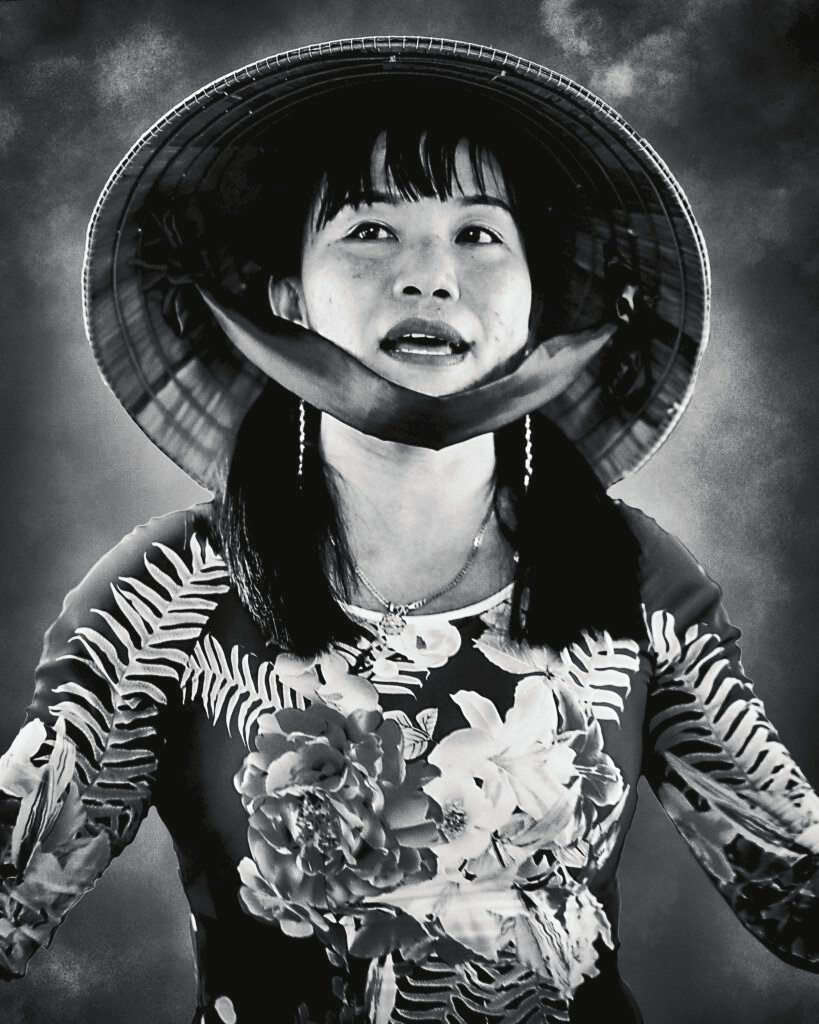
At a bend in the Mekong Delta, where the river splits into shimmering fingers and nipa palms lean low with secrets, a narrow wooden stage has been set beneath a thatched roof. The benches are filled—tourists with sunhats, cameras, water bottles gripped in restless hands. Then she steps forward.
A Vietnamese woman, maybe in her thirties, slender and poised, wearing a floral áo dài that catches the breeze like a whispered memory. Her hair covered by a traditional non la, framing a face lined by both beauty and labor.
Then she sings. Not loud. Not showy. But with a voice like morning mist rising off the rice fields—
soft, aching, ancient. A ca cổ, a traditional vọng cổ song of longing and rain, of lovers separated by war, of boats that never returned.
Her voice is the weight of the Mekong itself: its mud, its mangoes, its mothers. Its floods and its floating markets. Its lullabies.
She does not smile as she sings. Her gaze is fixed just above their heads, as if seeing something behind them—a life before the stage, before the eyes, before the sound of foreign applause. When the final note fades, she bows lightly and nods thank you in soft southern Vietnamese: “Cảm ơn quý khách.”